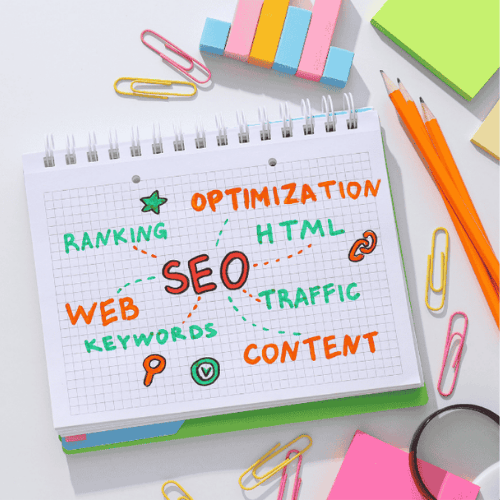Search Engine Optimization (SEO) is a vital digital marketing strategy aimed at increasing the visibility of a website or webpage on search engines like Google, Bing, and Yahoo. By optimizing content, structure, and technical aspects of a site, SEO helps improve its rankings in search engine results pages (SERPs), driving organic traffic.
What is SEO?
SEO involves various techniques to ensure that a website meets the criteria search engines use to rank pages. These techniques fall under two categories: on-page SEO and off-page SEO.
On-page SEO refers to optimizing individual pages on a website. It involves keyword research and placement, creating high-quality content, optimizing meta tags (titles, descriptions), improving internal linking, and ensuring that the website structure is user-friendly.
Off-page SEO involves activities that take place outside of the website, such as link-building strategies. Acquiring high-quality backlinks from other reputable websites signals trustworthiness and authority to search engines.
Why is SEO Important?
SEO plays a crucial role in digital marketing by improving a website’s visibility in search engines, which leads to more organic traffic. Since most search engine users are more likely to click on the top-ranking results, having a strong SEO strategy can significantly boost website traffic, generate leads, and increase conversions.
SEO Best Practices
Effective SEO strategies require consistent effort and optimization across various areas:
Keyword Research: Identifying relevant keywords that potential customers are likely to use when searching for your products or services. Tools like Google Keyword Planner, SEMrush, and Ahrefs help with keyword discovery.
Content Optimization: Creating high-quality, informative, and engaging content that answers users’ queries. Using targeted keywords naturally within the content is essential.
Mobile Optimization: With more users accessing websites from mobile devices, ensuring your website is mobile-friendly is essential for a good user experience and SEO ranking.
Page Speed: Faster loading times are critical for both user experience and SEO rankings. Google considers page speed as a ranking factor, and websites that load quickly tend to rank higher.
Backlink Building: Building high-quality backlinks from authoritative sites signals to search engines that your content is valuable and trustworthy.
Technical SEO: Ensuring the website’s technical elements (such as XML sitemaps, structured data, and SSL certificates) are correctly implemented can enhance search engine crawling and indexing.
SEO Trends
SEO is a constantly evolving field. To stay competitive, it’s essential to keep up with the latest trends, such as:
Voice Search Optimization: With the rise of virtual assistants like Siri and Alexa, optimizing for voice search is becoming increasingly important.
User Experience (UX): Search engines now prioritize websites that provide an excellent user experience, including easy navigation and high-quality content.
E-A-T (Expertise, Authoritativeness, and Trustworthiness): Google focuses on rewarding websites that display a high level of expertise, trust, and authority in their content.
Conclusion
Search Engine Optimization is an ongoing process that requires consistent effort, but the rewards are well worth it. By implementing solid SEO strategies, businesses can boost their website’s search engine rankings, increase organic traffic, and ultimately drive conversions. Staying updated with SEO best practices and emerging trends is key to long-term digital marketing success.
 :
https://in.pinterest.com/asclique/
:
https://in.pinterest.com/asclique/












